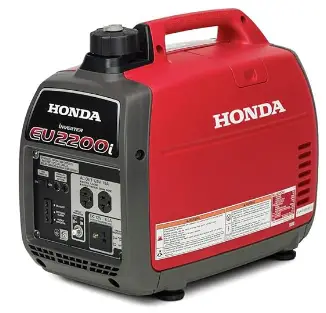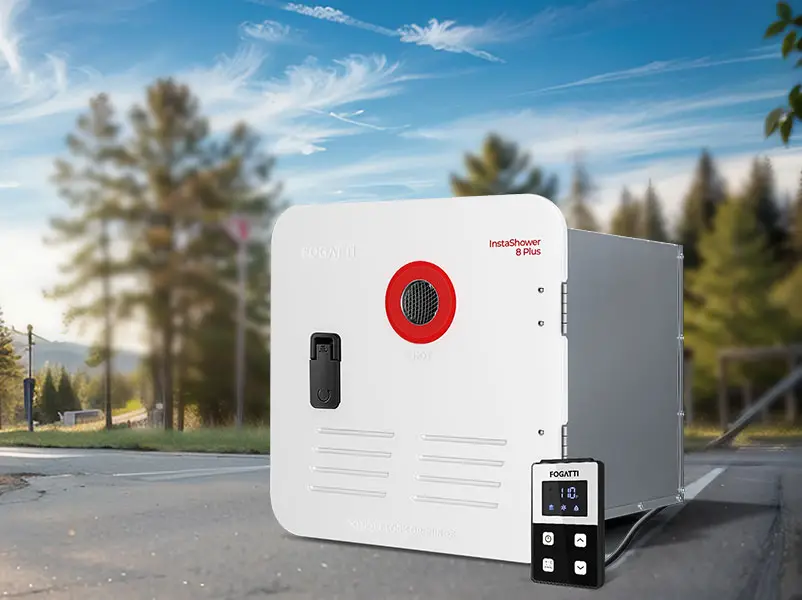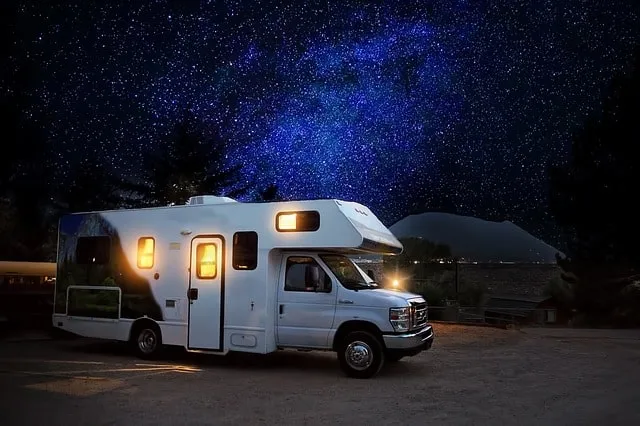Last Updated on February 14, 2024
Key Takeaways:
Small generators are essential for outdoor enthusiasts, offering reliable power in remote areas:
- Portable and Compact: Lightweight and easy to transport.
- Versatile Power Supply: Charges electronics, runs appliances, and powers lighting systems.
- Independence and Convenience: Provides self-sufficient power for exploring remote areas.
- Environmental Considerations: Some models are eco-friendly, with minimal emissions and noise pollution.
- Fuel Options: Available in gasoline, propane, and solar-powered models.
Types of Portable Generators:
- Gasoline: Common and versatile.
- Propane: Cleaner burning fuel.
- Inverter: Provides stable power output.
- Solar: Utilizes renewable energy.
Safety Measures:
- Proper Ventilation: Operate outdoors with good airflow to prevent carbon monoxide buildup.
- Correct Connection: Use appropriate cords and cables.
- Regular Maintenance: Inspect for damage, leaks, and wear regularly.
- Safe Refueling: Allow cooling before refueling and store fuel properly.
- Load Management: Avoid overloading to prevent damage.
Maintenance Tips:
- Read the Manual: Understand maintenance requirements.
- Regular Inspections: Check for damage and wear regularly.
- Fuel System Maintenance: Use clean fuel and replace filters.
- Oil Changes: Follow the manufacturer’s recommendations.
- Air Filter Maintenance: Clean or replace as needed.
- Coolant System: Monitor coolant levels for liquid-cooled generators.
- Load Testing: Test generator capacity periodically.
- Professional Servicing: Consider professional servicing for in-depth inspections and
Small generators are invaluable companions for campers, RVers, and outdoor enthusiasts, providing a reliable and convenient source of electricity in remote locations. They offer a range of benefits that make them perfect for powering various equipment and devices during outdoor adventures. Here are some reasons why these generators are essential and why they excel in the outdoors:
Portable and Compact
Portable generators are designed to be lightweight and compact, making them easy to transport and store. They are typically built with convenient handles or wheels, allowing campers to move them around effortlessly. Their compact size ensures they take up minimal space in your trailer or camping gear leaving more room for other essentials.
Power Supply Versatility
These generators can produce a sufficient amount of power to charge small electronics, run camping appliances, and power lighting systems. They often come equipped with multiple outlets, including USB ports and standard AC sockets, allowing you to connect a variety of devices simultaneously. From charging smartphones and cameras to running your whole trailer, small refrigerators or powering fans, small generators can cater to a range of camping needs.
Independence and Convenience
With a portable and quiet generator, campers can enjoy the convenience of having their own power supply, independent of campsite facilities or electrical hookups. This independence enables you to explore and camp in more remote areas, where access to electricity may be limited or unavailable. You can enjoy the great outdoors without compromising on essential comforts or missing out on important electronic devices.
Environmental Considerations
Many small generators are designed to be eco-friendly, employing advanced technologies like inverter generators. These models provide clean and stable power, with reduced noise levels and lower emissions. By opting for eco-friendly generators, campers can minimize their environmental impact while enjoying the benefits of portable power.
Versatile Fuel Options
Small generators are available in various fuel options, including gasoline, propane, and solar-powered models. Gasoline generators offer high power output, while propane generators provide a cleaner fuel alternative. Solar-powered generators utilize renewable energy, harnessing the sun’s power to generate electricity however these are generally lower power outputs. The availability of different fuel options allows campers to choose the one that best suits their needs and preferences.
Types of Portable Generators
Portable small generators are compact and lightweight power sources that are easy to transport and handle. They are typically used for camping, outdoor activities, and as backup power options for small appliances. Here are some common types of portable small generators:
Gasoline Portable Generators: Gasoline generators are the most common type of portable small generators. They run on gasoline fuel and provide a convenient and readily available power source. Gasoline generators are versatile, affordable, and available in various power capacities to suit different needs.
Table could not be displayed.
Propane Portable Generators: Propane generators are another popular option for portable small generators. They use propane fuel, which is stored in portable tanks. Propane generators are known for their cleaner burning fuel and longer shelf life compared to gasoline. They are often preferred for their lower emissions and fuel efficiency.
Inverter Portable Generators: Inverter generators are a specialized type of portable small generator that provides clean and stable power output. They use advanced electronics to convert AC power to DC and then invert it back to clean AC power, which makes them safe for sensitive electronic devices. Inverter generators are fuel-efficient, quiet, and ideal for camping, tailgating, and other outdoor activities.
Solar Portable Generators: Solar generators harness the sun’s energy to generate electricity. They consist of solar panels that capture sunlight and convert it into electrical energy, which is stored in built-in batteries. Solar portable generators are quiet, and suitable for off-grid power needs during camping or other outdoor adventures. They are typically lightweight and easy to carry.
No products found.
Generator Safety Measures
It’s important to remember that using a generator also poses its own set of risks. Safety measures should be taken to avoid harmful accidents.
To use a generator safely, it is important to consider certain precautions. When operating a generator, always ensure that it is placed outdoors in an open area with good air circulation. This prevents the accumulation of carbon monoxide, a dangerous gas emitted during combustion. Keep the generator away from doors, windows, and vents to prevent exhaust gases from entering enclosed spaces.
Proper ventilation is crucial to maintain a safe environment. Generators should never be used in confined or poorly ventilated areas. Make sure the generator is positioned in a way that allows for the easy dispersal of exhaust gases.
When connecting appliances or equipment to the generator, follow the manufacturer’s instructions and use appropriate cables and cords. Ensure that the generator and its components are properly grounded to minimize the risk of electrical shock.
Regular maintenance of the generator is essential for safe operation. Check for any visible signs of damage, leaks, or loose connections before starting the generator. Inspect the fuel lines, hoses, and filters for blockages or wear. Follow the recommended maintenance schedule provided by the manufacturer to keep the generator in optimal condition.
It is also crucial to exercise caution while refueling the generator. Turn off the generator and allow it to cool before refueling to avoid the risk of fuel spills and potential fire hazards. Store fuel in approved containers and in a safe location away from the generator.
Lastly, be aware of the generator’s load capacity and do not overload it. Overloading can lead to overheating, reduced efficiency, and potential damage to the generator. Prioritize and distribute the power requirements accordingly to avoid exceeding the generator’s capabilities.
Generator Maintenance
To keep your portable generator in top shape, there are a few tips to keep in mind. For starters, make sure to perform regular oil changes and check the air filter as needed. It’s also important to keep your generator clean and store it properly when not in use. By following these simple tips, you can ensure that your portable generator is always ready when you need it:
Read the Manual: Begin by thoroughly reading the manufacturer’s instruction manual for your specific generator model. It will provide detailed information about maintenance requirements and schedules specific to your generator.
Regular Inspections: Conduct visual inspections of the generator to check for any signs of damage, leaks, or loose connections. Look for frayed wires, worn-out parts, or any other visible issues. Inspect the fuel lines, hoses, and filters for any blockages or wear and tear.
Fuel System Maintenance: If your generator runs on gasoline or diesel, consider the following maintenance tasks:
- Fuel Quality: Ensure that you are using clean, fresh fuel. Stale fuel can lead to starting problems or clog the generator’s fuel system. Use fuel stabilizers if necessary, especially during long periods of inactivity.
- Fuel Filters: Regularly clean or replace fuel filters as per the manufacturer’s recommendations. Clogged filters can hinder fuel flow and affect generator performance.
Oil Changes: Check and change the oil at regular intervals, as recommended by the manufacturer. Old or contaminated oil can impact engine performance. Ensure you use the appropriate type and viscosity of oil as specified in the manual.
Air Filter Maintenance: Clean or replace the air filter based on the manufacturer’s guidelines. A dirty air filter restricts airflow to the engine and can cause performance issues.
Coolant System: If your generator is liquid-cooled, check the coolant levels and condition regularly. Flush and replace the coolant as per the manufacturer’s instructions.
Load Testing: Periodically perform load testing to ensure the generator can handle the intended power load. This test helps identify any issues with the generator’s capacity or performance.
Professional Servicing: Consider getting your generator professionally serviced at regular intervals or as recommended by the manufacturer. Professionals can perform more in-depth inspections, tune-ups, and repairs if required.
Last update on 2024-04-26 / Affiliate links / Images from Amazon Product Advertising API











